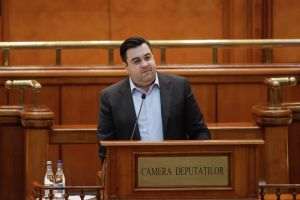Political leaders around the world reacted quickly to Donald Trump's victory in the US presidential election, with reactions varying significantly according to political orientations and national interests specific to each country. These reactions reflect the multiple concerns and expectations of European leaders towards a new Trump mandate, be it regional security, economic relations, or the sustainability of the North Atlantic Alliance.
The President of the European Commission, Ursula von der Leyen, emphasized the importance of stability in transatlantic economic relations and highlighted its impact on millions of jobs and commercial exchanges worth billions of euros, according to a message published by the Euractiv.com website. Thierry Breton, a former European commissioner, suggested, quoted by the daily Le Parisien, that this victory could accelerate Europe's strategic autonomy efforts.
The Euractiv website also shows that Mark Rutte, Secretary General of NATO, expressed his confidence that Trump will play a key role in maintaining the strength of the alliance, referring to the previous period in which Rutte, as Prime Minister of the Netherlands, had a mediating role between Trump and NATO.
Kremlin spokesman Dmitry Peskov said he was not aware of any plans by President Vladimir Putin to congratulate Donald Trump, according to Reuters and Tass news agencies. Peskov recalled that the United States is considered by Russia to be an unfriendly country, with which the Kremlin has extremely tense relations.
"Let's not forget that we are talking about an unfriendly country, directly and indirectly involved in a war against our state," said the spokesman of President Vladimir Putin. Peskov noted that Moscow is closely watching the statements of US officials about Russia, amid rising diplomatic tensions. He explained that relations between the two countries have reached an all-time low and that it is almost impossible for them to deteriorate further. However, Peskov noted that the US could change the trajectory of foreign policy. "We'll see in January," he said, referring to when Trump takes office, "if there is any significant change in Russian-American relations."
The cited sources mention that Ukraine reacted through President Volodymyr Zelensky, who reiterated the need for bipartisan support for Ukraine in the face of external threats. The Ukrainian president expressed hope that the US would continue to be a strong ally for Kiev, stressing the importance of continued support.
In Germany, Trump's victory is seen as an opportunity for domestic political stabilization, especially within the struggling governing coalition. According to Reuters, Chancellor Olaf Scholz congratulated the incoming US president, but local analysts believe that this context could prevent internal tensions and delay any call for early elections.
France reacted through the voice of President Emmanuel Macron, who welcomed Trump's victory in a message posted on X and Facebook and declared France's openness to collaboration, stressing the need for mutual respect and ambition in achieving common goals such as peace and prosperity.
Spain had a mixed reaction. Prime Minister Pedro Sanchez expressed his congratulations to Trump, emphasizing the desire to work together for a strong transatlantic partnership. However, left-wing leaders such as Podemos general secretary Ione Belarra criticized Trump's victory, which they blamed on the "failure of progressivism", and warned of the dangers of a return to what they see as reactionary policies. At the same time, Vox leader Santiago Abascal celebrated Trump's success, noting the importance of the Hispanic vote in this victory.
Euractiv reports that Italian Prime Minister Giorgia Meloni expressed her support for Trump's victory, citing the historic ties and shared values between the US and Italy. Matteo Salvini, Italy's deputy prime minister, also hailed Trump's victory, highlighting values such as patriotism, border control and freedom of expression seen as fundamental on this "historic day."
The cited source said the Czech Republic took a cautious approach, echoed by Foreign Minister Jan Lipavsky, who was skeptical of Trump's promises to quickly resolve the conflict in Ukraine. Lipavsky warned of adverse scenarios, comparing them to Czechoslovakia's territorial cessions of 1938. He stressed the importance of continued European support for Ukraine, noting that Europe must step up its efforts if the US is to reduce its involvement.
In Sweden, Prime Minister Ulf Kristersson congratulated the future American president and expressed hope for a productive collaboration, but local experts expressed their concern about the possible consequences for NATO and the future cohesion of the North Atlantic Alliance. Some have suggested that Sweden may be forced to increase its defense spending and seek greater security within the EU.
According to the Israeli websites Jerusalem Post, Times of Israel and TV station N12, Israeli Prime Minister Benjamin Netanyahu congratulated Donald Trump, calling his victory "the greatest comeback in history" and a new beginning in the US-Israel alliance.
Viktor Orban, the head of the Budapest government, congratulated Donald Trump, saying that it is "a very necessary victory for the world", according to the MTI agency.
The President of Turkey, Recep Tayyip Erdogan, stated, quoted by Anadolu Ajansi, that he hopes that in the future presidential mandate of Donald Trump, relations between the two states will be strengthened and that the conflict in Palestine and Ukraine will end.
According to the official press agency in Tehran, IRNA, the heads of Arab states in the Persian Gulf area, as well as the president of Egypt and the king of Jordan, expressed their hope that Donald Trump will restore peace in the Middle East, a region where the conflict situation escalated after the attacks Hamas since October 7, 2023 in Israel.
In contrast, from the Far East, only the leaders of South Korea, Japan, Taiwan and India congratulated Donald Trump on his victory in the presidential election, while the central authorities of China, Iran and North Korea were circumspect on the future of American policy in the Middle East and the Indo-Pacific region.































































